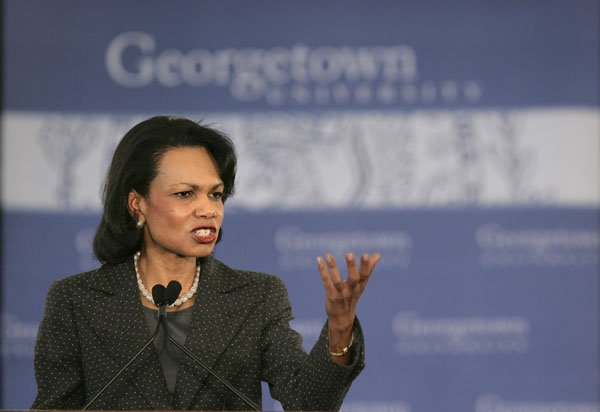Government Grants
Business Grants
Home Owner Programs
Federal Programs
About Us
Building a Network of Holocaust Educators in Poland
Purpose of Award:
U. S. Mission Poland invites proposals from potential partners in Poland to develop projects to build a network of Polish educators, potentially including secondary school teachers, school administrators, public education officials, and museum and cultural institution staff, and to provide continued activities to empower those individuals as they enhance Holocaust and human rights education programs at their home institutions.
This project would be announced in connection with U. S. remembrance of the 80th anniversary of the liberation of Auschwitz and the end of WWII.
Priority Program Area: Accurate education about the history of the Holocaust, teaching the Holocaust and human rights in context, countering antisemitism and other forms of discrimination, and other forms of Holocaust memorialization or remembrance.
Participants and Audiences:
Proposals should describe both the primary and secondary audiences for the program, including anticipated numbers to be reached.
Primary audiences are those who will participate directly in the program, while secondary audiences are those who will be reached by the project’s primary audiences as a result of their participation.
(For example, a workshop for educators would have teachers as the primary audience and the students in their classrooms as the secondary audience benefiting from the teachers’ professional development.) All project participants in (the primary audience for) the activities must be citizens or residents of Poland living and working in Poland, potentially including, but not limited to, secondary school teachers, school administrators, ministry of education officials, and public historians who work in museums and cultural institutions supporting secondary school or tertiary history education in their communities.
The following types of programs are not eligible for funding:
Programs relating to partisan political activity; Legal services and direct physical and mental health services provided to individuals (legal guidance and/or psychological, social or emotional development activities offered in a group setting may be supported by the grant); Construction programs; Programs that support specific religious activities; Fund-raising campaigns; Lobbying for specific legislation or programs; Academic or scientific research (note that curriculum development is an eligible activity); Programs intended primarily for the growth or institutional development of the organization; and Individual travel to attend a conference and/or courses at any educational institution.
This funding opportunity aims to support specific projects with objectives that can be achieved within a set timeframe.
We will not accept applications that are aimed more broadly at supporting your organization’s usual or typical daily activities and operations.
Those will be deemed technically ineligible and will not be considered for funding by the review committee.
U. S. Mission Poland invites proposals from potential partners in Poland to develop projects to build a network of Polish educators, potentially including secondary school teachers, school administrators, public education officials, and museum and cultural institution staff, and to provide continued activities to empower those individuals as they enhance Holocaust and human rights education programs at their home institutions.
This project would be announced in connection with U. S. remembrance of the 80th anniversary of the liberation of Auschwitz and the end of WWII.
Priority Program Area: Accurate education about the history of the Holocaust, teaching the Holocaust and human rights in context, countering antisemitism and other forms of discrimination, and other forms of Holocaust memorialization or remembrance.
Participants and Audiences:
Proposals should describe both the primary and secondary audiences for the program, including anticipated numbers to be reached.
Primary audiences are those who will participate directly in the program, while secondary audiences are those who will be reached by the project’s primary audiences as a result of their participation.
(For example, a workshop for educators would have teachers as the primary audience and the students in their classrooms as the secondary audience benefiting from the teachers’ professional development.) All project participants in (the primary audience for) the activities must be citizens or residents of Poland living and working in Poland, potentially including, but not limited to, secondary school teachers, school administrators, ministry of education officials, and public historians who work in museums and cultural institutions supporting secondary school or tertiary history education in their communities.
The following types of programs are not eligible for funding:
Programs relating to partisan political activity; Legal services and direct physical and mental health services provided to individuals (legal guidance and/or psychological, social or emotional development activities offered in a group setting may be supported by the grant); Construction programs; Programs that support specific religious activities; Fund-raising campaigns; Lobbying for specific legislation or programs; Academic or scientific research (note that curriculum development is an eligible activity); Programs intended primarily for the growth or institutional development of the organization; and Individual travel to attend a conference and/or courses at any educational institution.
This funding opportunity aims to support specific projects with objectives that can be achieved within a set timeframe.
We will not accept applications that are aimed more broadly at supporting your organization’s usual or typical daily activities and operations.
Those will be deemed technically ineligible and will not be considered for funding by the review committee.
Obtain Full Opportunity Text:
U.S. Embassy Warsaw website's grant applications page
Additional Information of Eligibility:
-Polish and U. S. not-for-profit organizations are eligible to apply, including think tanks and civil society/non-governmental organizations.
-Polish and U. S. cultural and educational institutions, including public and private universities, museums, and cultural or educational centers, are eligible to apply.
Full Opportunity Web Address:
https://pl.usembassy.gov/education-culture/grants/
Contact:
Agency Email Description:
For Inquiries
Agency Email:
Date Posted:
2024-05-10
Application Due Date:
Archive Date:
2024-08-08
Social Entrepreneurship
Spotlight
When it Comes to Social Enterprises, Failure is the Best Platform for Innovation

In the world of social enterprises, failure is a cringe-worthy moment nobody wants to talk about. But, social entrepreneurs can benefit from their failures.

